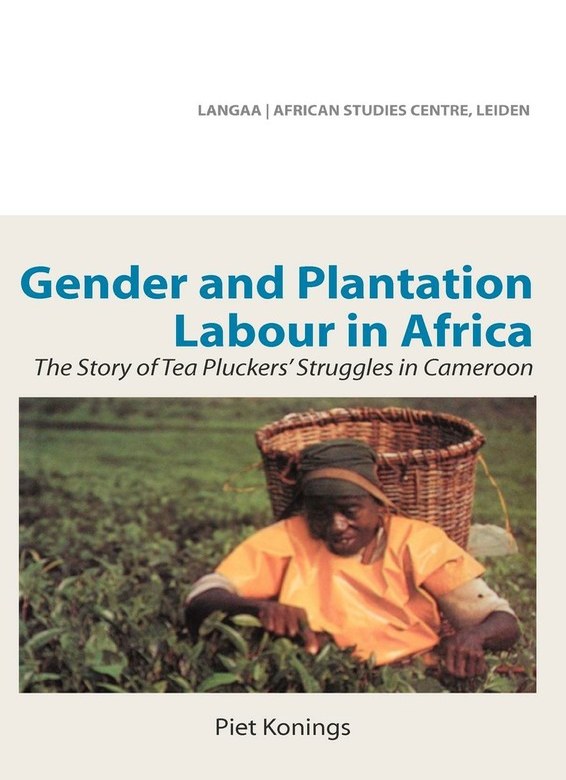written by Piet Konings
The Story of Tea Pluckers’ Struggles in Cameroon
This book explores the relationship between plantation labour and gender in Africa. Such a study is the more opportune because most of the existing works on plantation labour in Africa seem to have either under-studied or even ignored the changing conceptions of gender on the continent in recent times. One of the book’s major concerns is to demonstrate that the introduction of plantation labour during colonial rule in Africa has had significant consequences for gender roles and relations within and beyond the capitalist labour process.
The book focuses on two tea estates in Anglophone Cameroon. A study of these estates is particularly interesting in that one of them employs mainly female pluckers while the other employs mainly male pluckers. This allows for an examination of any variations in male and female workers’ modes of resistance to the control and exploitation they meet in the labour process. Such a comparative analysis is helpful in assessing the widespread managerial assumption on tea estates that female pluckers tend to be more productive and docile than male pluckers.
| ISBN | 9789956727308 |
| Pages | 306 |
| Dimensions | 229 x 152 mm |
| Illustrations | B/W Illustrations |
| Published | 2012 |
| Publisher | Langaa RPCIG, Cameroon |
| Format | Paperback |





3 comments
“Piet Konings writes really well and is quite focused and specializes in the history of labour in Cameroon. His research material is extensive and rich [….] Truly, women in the real field of work, in Cameroon, as elsewhere, as a labour force are confidently still formally and informally resisting patriarchy in its old and new forms.”
Professor Ifi Amadiume, Dartmouth College, USA
“The merit of Konings’s study is its focus on the consciousness and action of female workers, an area which has received only marginal attention from researchers. [….] In a continent where reliable statistics are difficult to come by, a case study like Piet Konings’s is most welcome. It is rich in data, well documented, well situated in relation to the relevant literature and debates, and quite accessible in style and language.”
Francis B. Nyamnjoh, Professor of Social Anthropology, University of Cape Town
“At last, Piet Konings has opportune the academic and development circles of students, teachers, researchers, policy makers and field practitioners in Cameroon and elsewhere of the effect of macroeconomic policy on the labour force and livelihoods of plantation workers. A very important feature of the book is the gender dimension of the interrogation and analysis. Combined with its lucidity, the book will no doubt serve as a useful textbook in a variety of disciplines.”
Joyce B. Mbongo Endeley, Professor of Agricultural Extension Education & Gender Studies, University of Buea